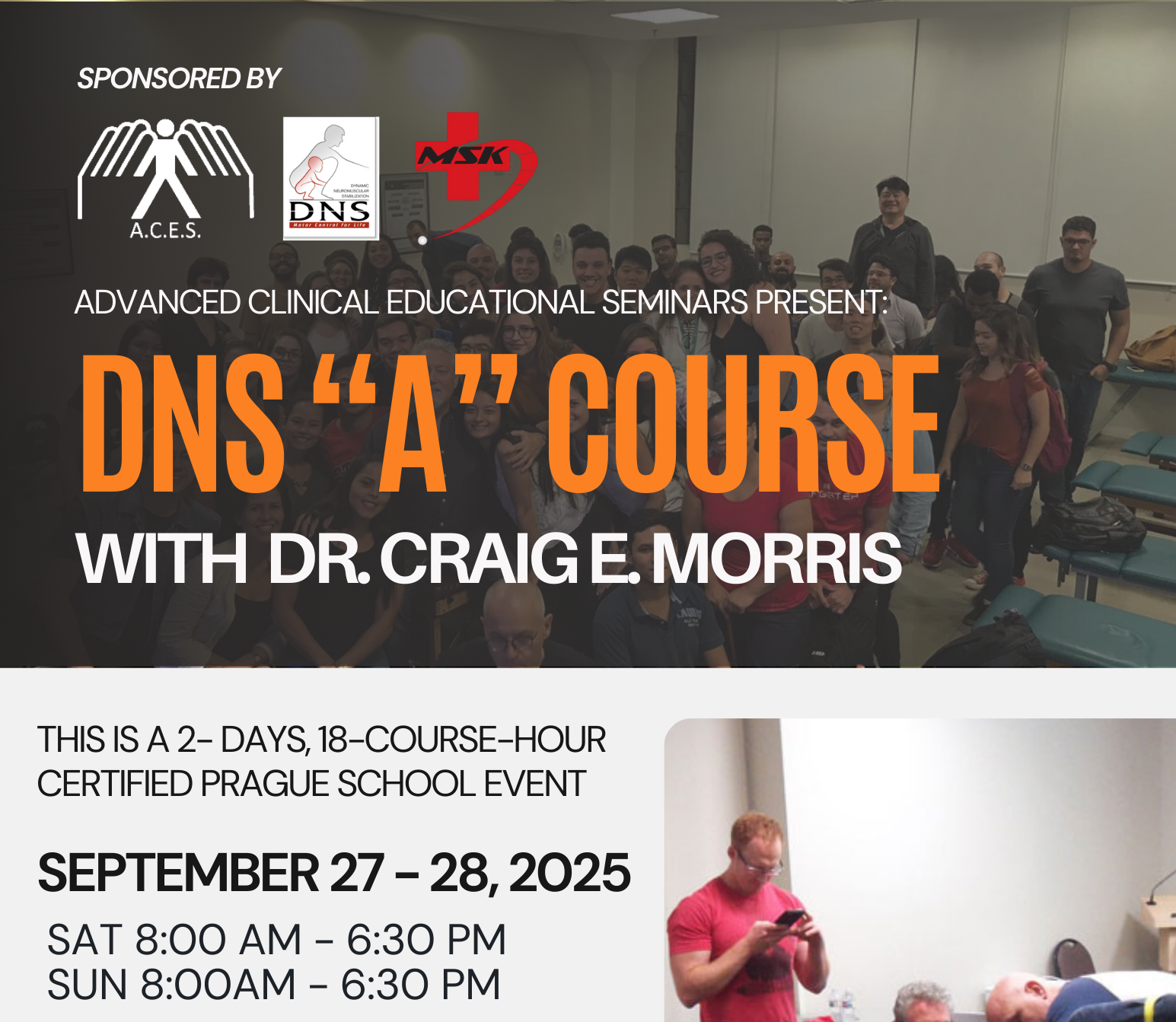DNS Course “A”, Buffalo, NY Details:
Dynamic Neuromuscular Stabilization according to Kolar (DNS)
A Developmental Kinesiology Approach
DNS “A” Course & Certification Summary:
- Improve understanding of the basic principles of developmental kinesiology, emphasizing development during the first year of life.
- Identify and describe critical milestones in human development.
- Introduce the three levels of sensorimotor control in functional assessment and treatment.
- Demonstrate the relationship between development during the first year of life and pathology of the locomotor system in adulthood.
- Introduce new terminologies pertinent to rehabilitation, such as functional joint centration, punctum fixum, punctum mobile and the integrated stabilizing system of the spine.
- Define ideal postural stabilization from a developmental perspective: intra-abdominal pressure regulation, the dual role of the diaphragm in stabilization and respiration, and stabilization via co-contraction.
- Identify common stereotypes of faulty postural stabilization (“open scissors syndrome,” forward drawn posture, backward drawn posture, “hourglass syndrome”).
- Explain and demonstrate biomechanics of undifferentiated, ipsilateral and contralateral postural-locomotion patterns; closed and opened kinematic chains, stepping forward and supporting function.
- Evaluate and correct poor respiratory patterns.
- Demonstrate the correlation between poor respiration patterns and functional pathology of the locomotor system.
- Assess the integrated stabilizing system of the spine visually and by utilizing dynamic functional tests.
- Integrate corrective exercises based on the DNS functional tests and developmental positions: exercise in undifferentiated static positions; position transfer during locomotor function; exercise progression using unstable surfaces; increased difficulty of the exercises utilizing resistance, dual tasking and other challenges.
- Clarify how DNS corrective exercises can integrate with other exercise strategies.
- Cover the basics of the application of the DNS concept in sports training.
- Provide essential clinical management explanations for clinicians to better integrate the DNS approach in their regular practice, including patient education.
- Optimally prepare students for the next level of training (Course “B”).
A Certificate of ATTENDANCE will be awarded by local instructor
OPTIONAL EXAMINATION
Participants who would like to participate in the educational track towards becoming a certified practitioner can take this exam. Go to the Prague School website – www.rehabps.com – for more information. The DNS A test is completely automatic and online.
Upon successful completion and passing of the test, a Certificate of ACHIEVEMENT from Prague School of Rehabilitation will be awarded.
NOTE: Our class sizes are limited to 15 students, so sign up quickly!
Sponsored by MSK-plus.ca.



